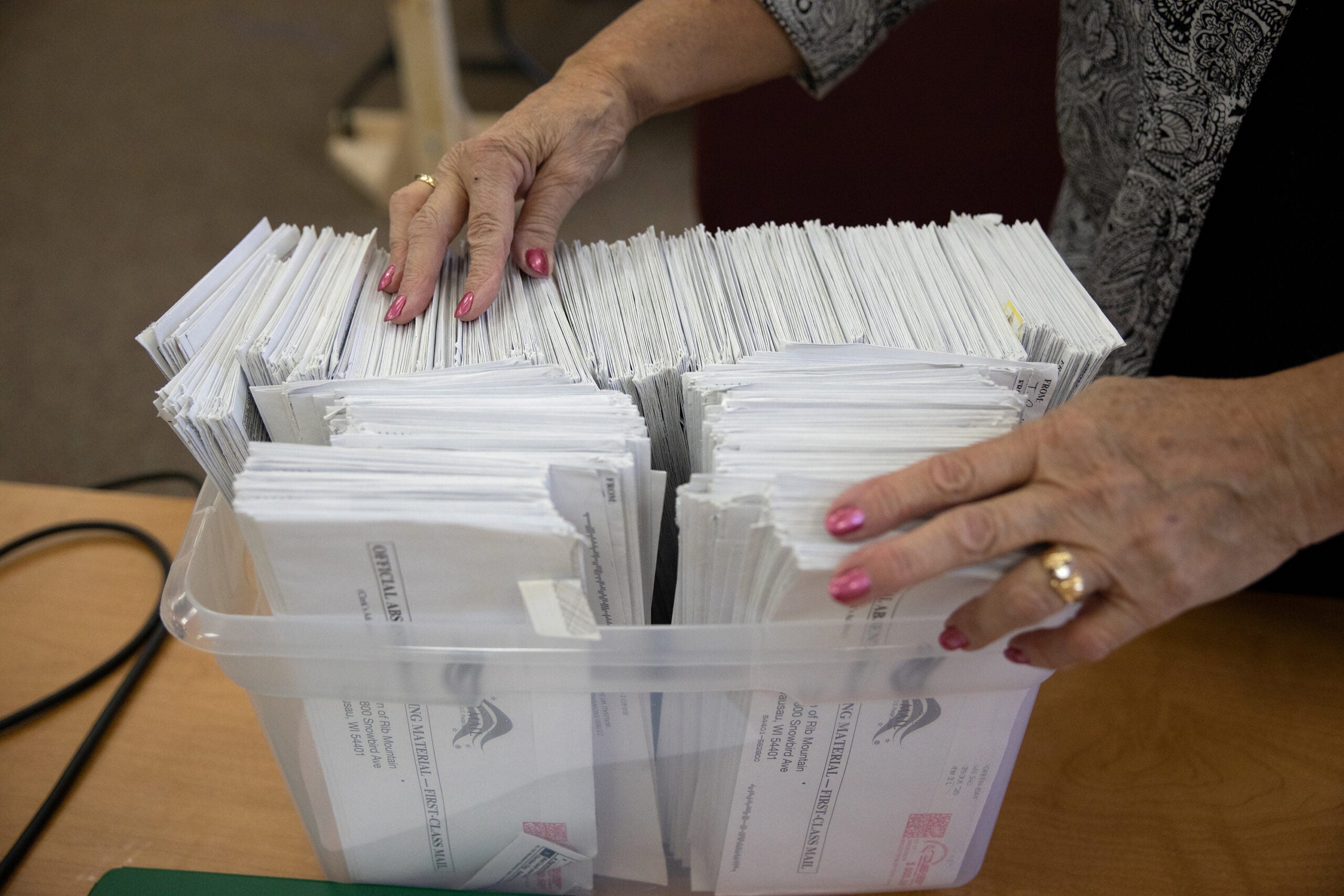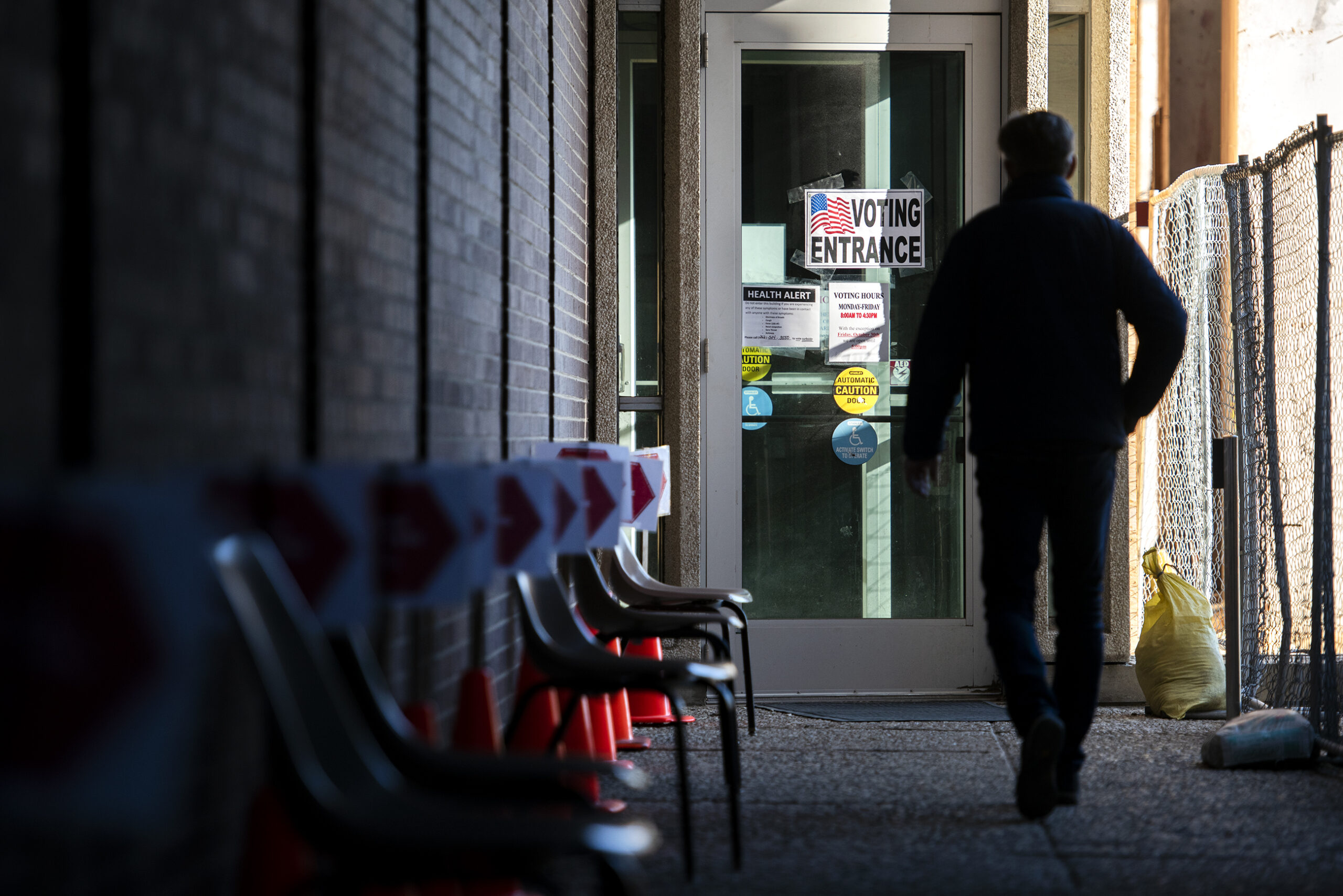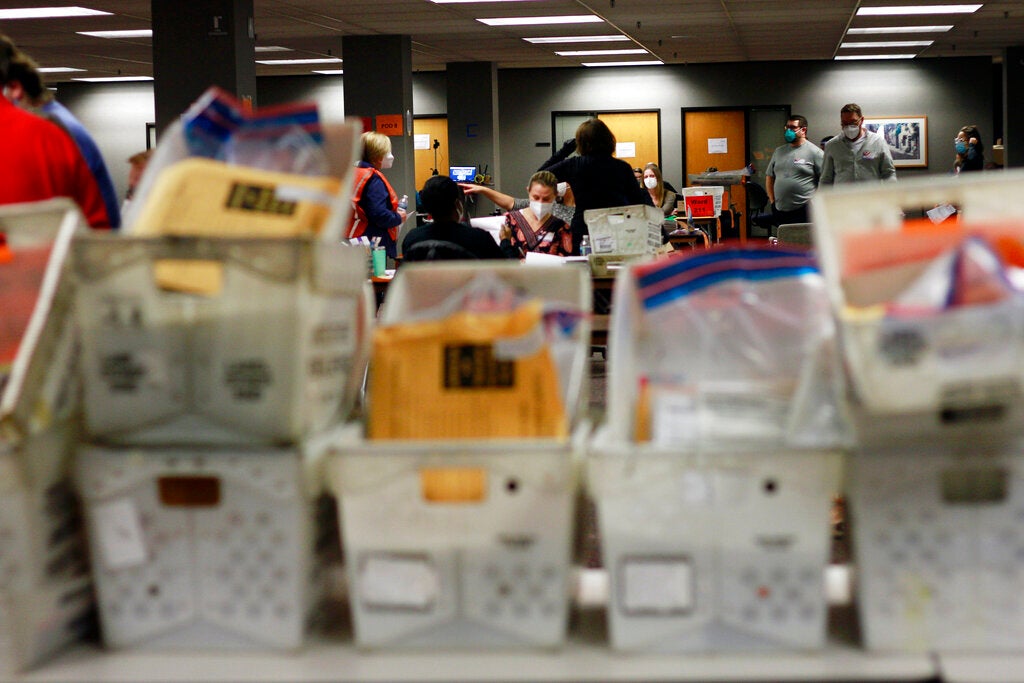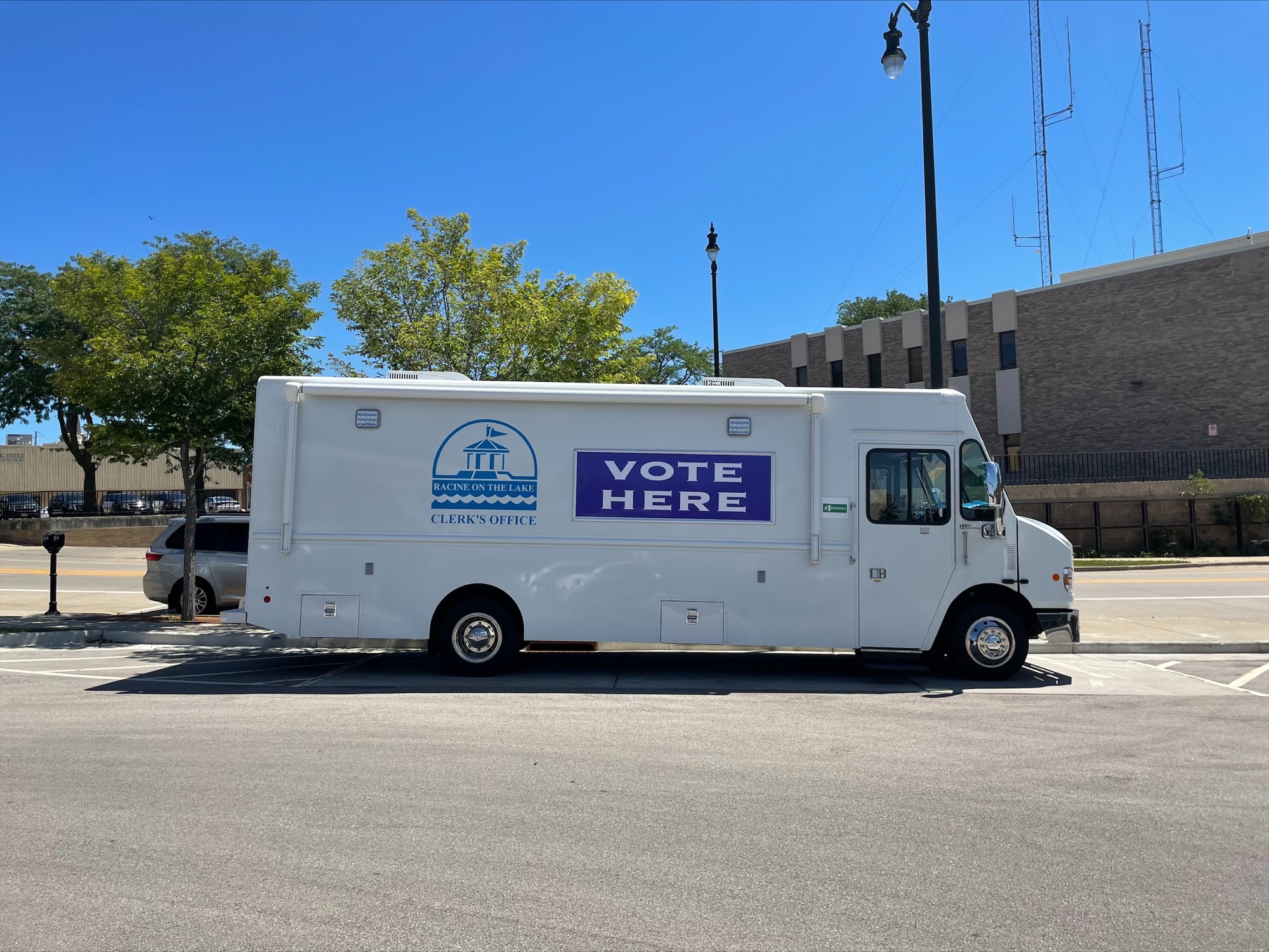A judge in Waukesha County has denied a request that would have required military ballots in Wisconsin to be sequestered. The decision is in response to a lawsuit filed Friday asking for the state’s election officials to block the immediate counting of all military absentee or mail-in ballots in this week’s elections.
The lawsuit was filed in Waukesha County Circuit Court by Rep. Janel Brandtjen, R-Menomonee Falls, along with two other individuals and a veterans’ group just four days before the midterm elections. Brandtjen, who serves as the chair of the state Assembly Committee on Campaigns and Elections, has been scrutinized at times for using her committee to bring attention to speakers who have sown doubt about the 2020 election results.
It came after Kimberly Zapata, then-deputy director of Milwaukee’s election commission, was abruptly fired last week when she allegedly requested fraudulent military absentee ballots and sent them to Brandtjen’s house. She was later charged with election fraud and misconduct in public office.
Stay informed on the latest news
Sign up for WPR’s email newsletter.
In a statement, Brandtjen said Zapata’s actions show “just how easy it is to illegally acquire military ballots.” The purpose of the lawsuit, the statement read, is to “close the loopholes” that she believes allow fraudulent voting.
Speaking at a hearing Monday afternoon, Judge Michael Maxwell said he does not think it is appropriate for the court to sequester the ballots.
“I do believe that there are other avenues available under the statutes for anybody that were to believe that there’s a fraudulent military vote being cast,” he said.
Maxwell also declined to order the Wisconsin Elections Commission to send a list of verified military electors to clerks around the state, arguing that state statute requires the clerks themselves to maintain such lists.
Still, Maxwell criticized the elections commission, saying the agency should do more to make sure clerks are complying with state law regarding military voters.
“If (the Wisconsin Elections Commission’s) job on the 361 days we’re not administering an election can’t be to make sure that municipal clerks do their job, I’m not sure why we have that state agency at all,” he said.
One of Brandtjen’s attorneys, who spoke at Mondays hearing, was Michael Gableman of the conservative Thomas More society. In August, Gableman was fired by Republican Assembly Speaker Robin Vos from a position overseeing an investigation of the 2020 election.
Will Attig, executive director of the Union Veterans Council, or UVC, which requested to intervene in the case, said he believes the purpose of the lawsuit is to “disenfranchise” active duty service members.
“This is an affront to our Constitution and our democracy, and everybody’s equal ability to work to vote,” he said in a Monday press conference, where he added he hopes the lawsuit is thrown out as quickly as possible.
Chris Yatchak, chair of Milwaukee’s chapter of UVC, said he has been an election inspector for 15 years, and has never come across a case of voting fraud.
“I find it unconscionable that they would do that considering that these are the people whose sacrifices have ensured that we have free and fair elections,” he said.
According to the Wisconsin Elections Commission, absentee ballots for military members “are not subject to the same laws as other absentee ballots.” Military members are not required to register to vote and are exempt from providing any photo identification information to vote.
The elections commission estimated that military ballots themselves make up an average of 0.07 percent of total ballots requested each election. In the 2018 general election, 2,700 military ballots were requested.
As of Monday morning, more than 719,000 total absentee ballots had been returned, according to the elections commission. All absentee ballots must be received by the close of polls at 8 p.m. Tuesday in order to be counted.
Wisconsin Public Radio, © Copyright 2025, Board of Regents of the University of Wisconsin System and Wisconsin Educational Communications Board.





